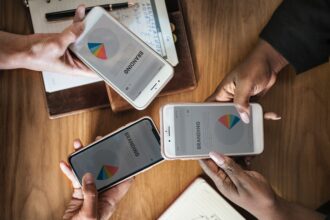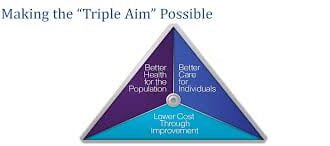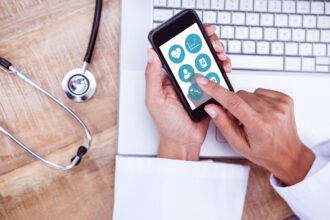Generally speaking, people normally do two things when they are worried about their health or get ill – go to the doctor and go onto Google. They might also discuss the issue with family or neighbours or perhaps a pharmacist.
But their ability to deal with their illness effectively is not purely dependent on their trips to the doctor or onto Google. It will depend on what’s increasingly described as their level of ‘health literacy’.
What defines somebody as health literate?
Generally speaking, people normally do two things when they are worried about their health or get ill – go to the doctor and go onto Google. They might also discuss the issue with family or neighbours or perhaps a pharmacist.
But their ability to deal with their illness effectively is not purely dependent on their trips to the doctor or onto Google. It will depend on what’s increasingly described as their level of ‘health literacy’.
What defines somebody as health literate?
I answered a survey on health literacy for the Patient Information Forum (http://www.pifonline.org.uk) yesterday and in presenting my answers, found myself getting increasingly unsettled by the idea that a person can be defined as ‘health literate’ or to have ‘low levels of health literacy’.
When asked in the survey for my understanding of ‘health literacy’, I described it as a level of ability to understand your own health; the information associated to it; the information specific to the condition you’re dealing with; the understanding of choices in relation to dealing with it; the ability to make an informed choice; the ability to act on that choice – quite a line up and all fairly logical.
But as health literacy plays an increasingly important role in person-centred healthcare, how will the support needed to grow peoples’ capability be delivered? And how is health literacy going to be measured? On what basis?
My sense is that supporting people to develop their health literacy skills will need to be highly personalised – and therefore the measurement of ability evermore granulised – so requiring deeper scales to produce data about levels of not just knowledge, but also confidence and an understanding of their personal preferences and all the other stuff that’s going on in their lives.
Without granulising there’s a danger of an over-reliance on generic scales – a person may judge themselves to have a high level of health literacy based on some components of information they are looking for, or are in need of, i.e. symptoms etc, but have low levels of confidence in relation to other information, about their diagnosis, for example.
My feeling is that health literacy cannot only be based simply on whether information is presented in an easy-to-read format, nor can it be solely linked to people’s general levels of literacy and numeracy.
Certainly these are important factors in a person’s ability to address their health, but measuring health literacy will surely involve going deeper and including measurements of confidence and capability in other aspects of life – possibly all areas of life. It’s a science that’s generating a lot of excitement and interest, particularly as the demand for patient involvement and engagement in the co-production of their own health is rising, not simply as a social concern but also an economical (and thus commercial) one.
Understanding how people use and value information is important as we try to measure people’s ability to safely manage their own health.
Other critical measurements of health literacy may include their use of social media and the information they pick up through the webs of interactions they make with others who may be experiencing a similar health condition, and what they choose to do with that information.
There are some excellent patient engagement and health literacy measurement tools available and the work of Judy Hibbard with the Patient Activation Measurement in the US and Richard Osborne with the heiQ in Australia are leading the way on this.
But mainstreaming such approaches into health systems is a significant challenge. One that requires innovative design and development to sit alongside the measurement science and all the evidence it has produced to date.
Perhaps most importantly this will include other supporting factors such as finding ways to measure the contributions health care professionals and patients make in the shared decision making processes of healthcare.







